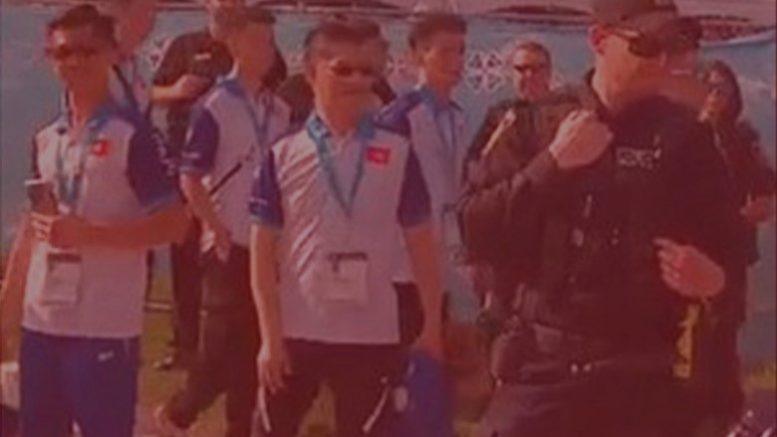By Chris Yeung —
Three years after the Hong Kong national security law took effect, there have been no signs of an easing of the crackdown against deeds and words that were alleged to have endangered national security. The opposite is true.
There are more indications of further strengthening of the leadership of the two national security teams under the Police and the central government respectively.
It has come at a time when the national security officers kept taking action against both alleged “hard resistance” and “soft resistance” from within the society and outside Hong Kong against the regimes.
Last month, Dong Jingwei, formerly a deputy minister of state security, was appointed to head the central government’s head of the Office for Safeguarding National Security in Hong Kong, replacing Zheng Yanxiong, who became the Liaison Office director.
Speaking at a seminar on a counter-espionage regulation that came into force in April 2021, Dong urged the mainland’s intelligence officers to step up their efforts to hunt down foreign agents and insiders who colluded with “anti-China” forces.
His appointment came weeks after the Hong Kong Police announced unprecedented HK$1 million per head bounties for information that led to the arrest and prosecution of eight opposition figures accused of breaches of the national security law.
During the past few weeks, family members of the eight in Hong Kong had been questioned by the Police for their contacts, if any, with the wanted persons.
Last week, media reports said a former deputy police commissioner (national security) Lau Chi-wai, who retired in April, was given a top post at the SAR’s Committee for Safeguarding National Security. According to the Chinese reports, her new post is 執行長. The official English title is yet to be seen; it can be translated as chief enforcement officer.
Chaired by Chief Executive John Lee Ka-chiu, the top-level committee was composed of top government officials and the Liaison Office chief. Former deputy security minister Au Chi-kong was named as the committee’s secretary-general, who heads the committee’s secretariat under the national security law.
There was no official announcement on the appointment of Lau, nor denial of the press reports.
Like the expenditure of the Police’s national security team, Lau’s role and work in the top-level committee in charge of national security, have been wrapped in secrecy.
Taken together with the appointment of a former state security vice minister to head Beijing’s national security office in Hong Kong, Lau’s appointment has given a clear message that the aggressive approach in eliminating threats of national security adopted since the law came into place will continue in the foreseeable future.
In addition to the cases that have been put to court or are being investigated including the eight, last week’s arrest of 10 people linked to the now-disbanded 612 Humanitarian Relief Fund shows the process of “counting old scores” is likely to be speeded up.
The Fund was set up to help those involved in the 2019 anti-government protests.
In May last year, retired Catholic leader Cardinal Joseph Zen Ze-kiun and former legislator Margaret Ng Ngoi-yee were among five former trustees of the disbanded fund arrested by police for allegedly colluding with foreign forces. They had been released on bail.
Both the legal fund case and the case that involved the eight hinged upon alleged collusion with foreign forces, which is a serious crime that has become more complex and controversial in times of heightened tension between China and some leading Western countries.
Protests that confronted a delegation of Hong Kong disciplined forces’ athletes at the World Police and Fire Games, which was held in Canada early this month, have given credence to both Beijing and the Hong Kong authorities to argue against softening in countering threats from subversives.
Composed mostly of athletes from the Police, the Hong Kong disciplined forces’ team were greeted by protesters from Canadian parliamentarians, human rights activists and Hong Kong migrants.
The athletes were greeted by a team of senior officials led by Chief Secretary for Administration Eric Chan when they returned to the airport last week.
In a move to bolster the morale of the disciplinary forces’ team, the mainland departments in charge of Hong Kong affairs have issued statements to congratulate their success and to condemn the “anti-China disruptors” for causing trouble and harassing the Hong Kong team members.
Their combative response is seemingly aimed to counter the criticism against the city’s human rights record launched by politicians, human rights groups and Hongkongers who fled the city after 2019.
This is despite the fact that doing so may back-fire, drawing more negative publicity in overseas media, thus making a mockery of the Government’s much-publicised goal of telling a good Hong Kong story to the world.
(This article first appeared on Green Bean Facebook)
ends


Be the first to comment on "All not quiet on national security front"